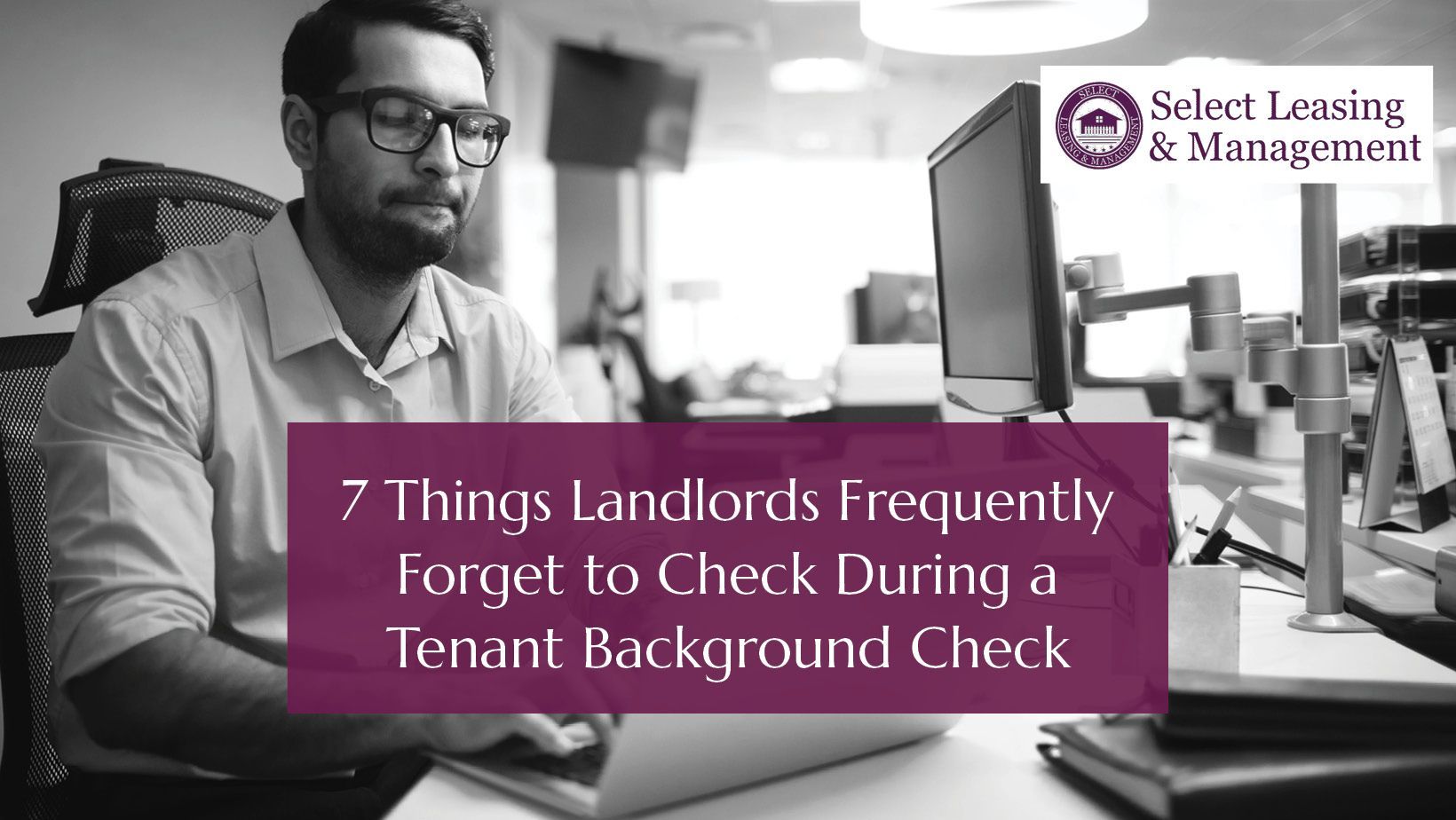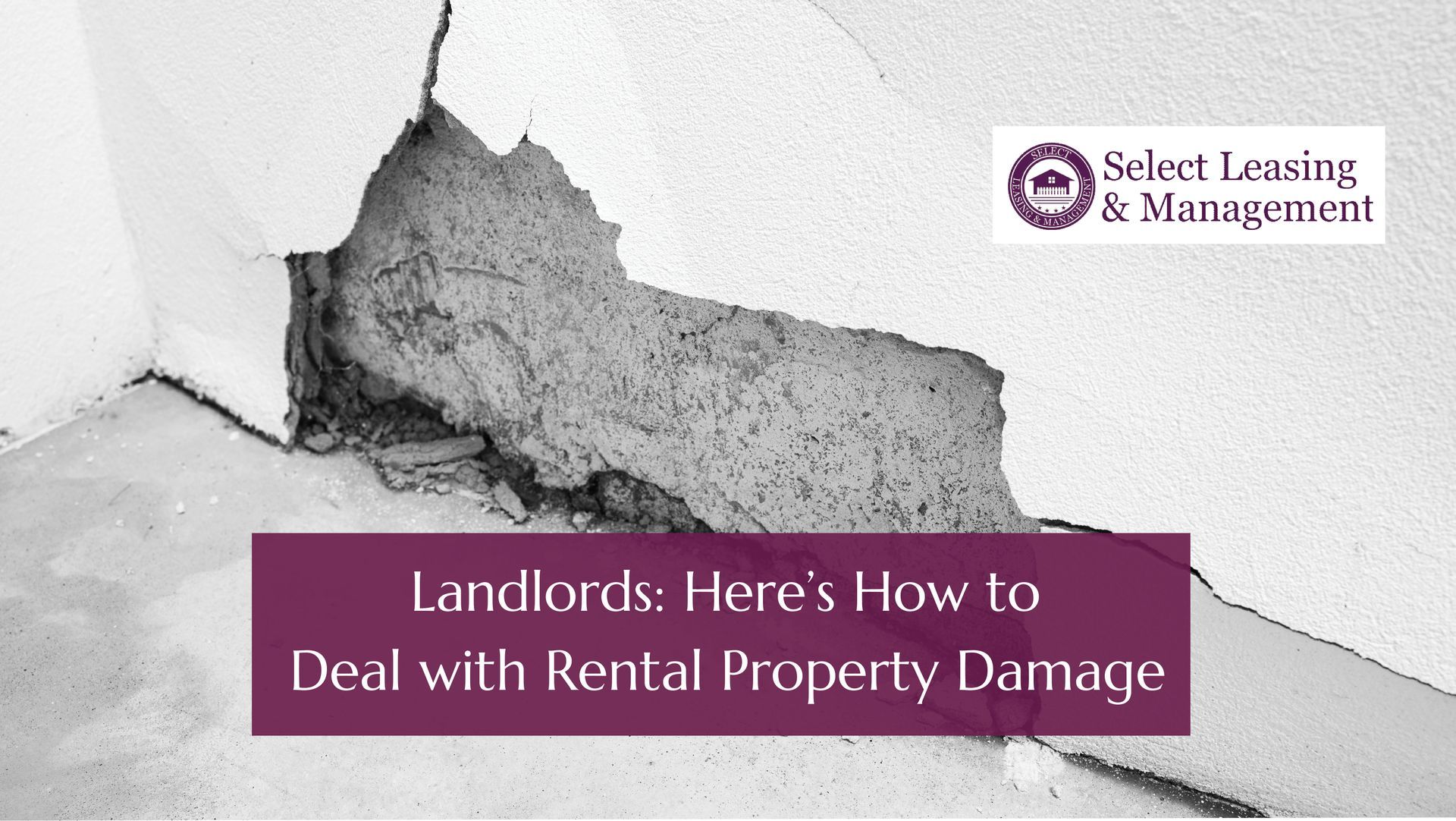Blog

Rental property emergencies can take many forms, from nuisances like burst water pipes to life-threatening fires or natural disasters. Regardless of the severity of the emergency, landlords must be prepared to respond quickly and decisively to ensure tenant safety and to minimize property damage. Emergency preparedness for landlords who self-manage their rentals can be a daunting task. Entrusting a property management company instead is the perfect solution for landlords who are overwhelmed by the prospect. These professionals have the expertise to anticipate a variety of scenarios, plan and organize resources, and know what to do if and when a crisis arises. Here’s how they do it.

As a Landlord, you can’t just “trust your gut” when it comes to letting a new tenant move into a rental unit. Some type of tenant background check is necessary to ensure the person is who they say they are, can pay rent, and won’t cause trouble or property damage. While there is no guarantee that someone will be a good renter or a bad one, a thorough screening process can help improve the odds. It’s also helpful to dig a little deeper than the usual questions for things landlords frequently forget, or that might be missed in a background check. The Importance of Tenant Screening Owning rental property is a business, and profits depend on collecting rent, minimizing expenses, and maintaining the investment’s value. Simply put, finding good tenants with tenant background checks is a wise business decision. Saying “yes” to the wrong person can cause property owners a lot of problems, like: Unstable finances due to unpaid or chronically late rent Increased maintenance, repair, and cleaning if tenants mistreat the property Losing good tenants driven out by a neighbor’s disruption Safety concerns and potential premises liability due to criminal behavior Legal fees if eviction proceedings are necessary The consequences of not doing background checks are far worse than the time and money it takes to do them in the first place. Ground Rules for a Tenant Background Check The U.S. Department of Housing and Urban Development’s Fair Housing Act makes it illegal to turn down applicants for the following: Race Color National Origin Religion Sex (including gender identity and sexual orientation) Familial Status Disability Not only is it against the law to even ask about these factors, but they have nothing to do with whether someone will be a good or bad tenant . Far more important information can be learned from a credit check, a criminal background check, and an application that asks for meaningful information about the applicant’s rental history. Landlords are within their rights to ask for the following: Employment and salary history Current income Social security number Driver’s license number Past evictions Credit history and bankruptcies Arrests, convictions, and inclusion on the sex offender list References Nothing prevents a person from lying about something on this list, but the information will be included in formal screenings. Inconsistencies in what’s written on the application and what comes to light with a background check are enough to justify turning down the application. Landlords must get written consent to do tenant background checks for both criminal history and credit scores. An applicant’s refusal to give permission is itself a red flag that the person may have something to hide. Property owners are allowed to make background checks a requirement to consider an application . Things Landlords Frequently Forget to Ask During Screening Along with the standard background information listed above, there are some other things landlords can look into that can be helpful in making a rental decision. These topics can be added to the application so the answers are in writing. As long as all applicants are asked the same questions, they are not discriminatory. 1. What are the names of all occupants? There are several reasons why knowing exactly who will be living in the rental unit is important. Ideally, all adults should be included in the lease. This way, roommates, partners, and adult children can all be screened for criminal histories and red-flag behavior. It might seem trivial, but a follow-up question asking how many vehicles will be on the premises could be relevant if parking space is limited. Some leases include occupancy limits , either due to local laws or the landlord’s preference. This is another reason to ask for the names of both full-time and part-time occupants. Perhaps a tenant is the only full-time resident but has custody of several children on weekends or for the summer. Renting to them could violate the lease or Missouri housing standards . 2. Have you ever broken a lease or been asked to move? Evictions are usually a last resort, so the standard question about past evictions may not give a landlord enough information. Asking these questions instead can be revealing. A past landlord may have given warnings and threatened to evict someone, but the tenant moved before they had to follow through. Likewise, a tenant may have stopped paying rent and left before their lease expired. Either situation is a red flag. These questions can open a discussion to see if there is a reasonable explanation. 3. What is the status of prior arrests or convictions? Everyone deserves a place to live, including those with a criminal past. Past arrests or convictions might come up for people who otherwise might be great tenants. What’s often missed in a background check is how their case was resolved or their current status. Probing into the nature and seriousness of the crime and how long ago it occurred can tell a lot. Was it a misdemeanor or a felony? Is the case resolved or has it not yet gone to trial? Can a parole officer vouch for you if they were incarcerated? Are you in rehab or otherwise working toward rehabilitation? Are you in the National Sex Offender Registry? Remember, people can be arrested for many things but are innocent until proven guilty. And even if found guilty, they may have paid their debt to society. Unless you choose to adopt a zero-tolerance policy (which is perfectly acceptable), having these conversations is helpful. Consider, too, that an applicant who is open about their past and tells you what you will learn from a background check, may be worth a second look.

While most renters are used to signing a lease, there is no law that says a landlord is obligated to use one. And for a variety of reasons, many people pay to live somewhere without the benefit of any kind of written document. But just because there isn’t a binding contract spelling out rights and responsibilities, doesn’t mean there aren’t any rules. A landlord and tenant without a lease still have some protections. How the Law Views Renting Without a Lease Anyone who pays to occupy a dwelling where they are not the owner is a tenant in the eyes of the law. A tenant without a lease is known as a tenant-at-will. Instead of writing up a rental agreement or lease which is a legal document, the tenant and landlord have an implied lease. This is a verbal agreement that may include the amount of rent, when it’s due, who will be responsible for paying utilities, and any other conditions the two parties decide on. Common situations when an owner of a property might choose not to use a lease include allowing a friend or family member to move in or getting a roommate. Someone may also become a tenant-at-will if their landlord lets a written lease end without renewing it, or if a written lease is so poorly written that it will not stand up in court. With an implied lease, landlords and tenants have the same rules and protections as if they had a written month-to-month contract (or week-to-week if that is how rent is paid). State and local laws determine those rights and obligations. So, the rights of tenants in Missouri or Illinois might be different than in other states. Essential Rights of Tenants All tenants who pay rent, whether they have a lease or not, are entitled to certain protections under the law, no matter where they live. Rental properties must: be a safe and habitable environment provide access to necessary services such as water, heat, and electricity comply with all state and local health and building codes respect tenants’ right to privacy Anything beyond these basic requirements is typically documented in a lease agreement , for example outlining pet or smoking policies, or providing renters with a parking spot, laundry facilities, etc. These things may apply to a tenant without a lease too, but it is based only on a verbal promise. So, if the landlord decides to suddenly ban pets or take away a tenant’s parking spot, the tenant has no recourse since it was never put in writing. Some rules, like occupancy limits, might be determined by local ordinances. Both the landlord and tenant will need to follow these laws, regardless of any agreement they may make between them.














